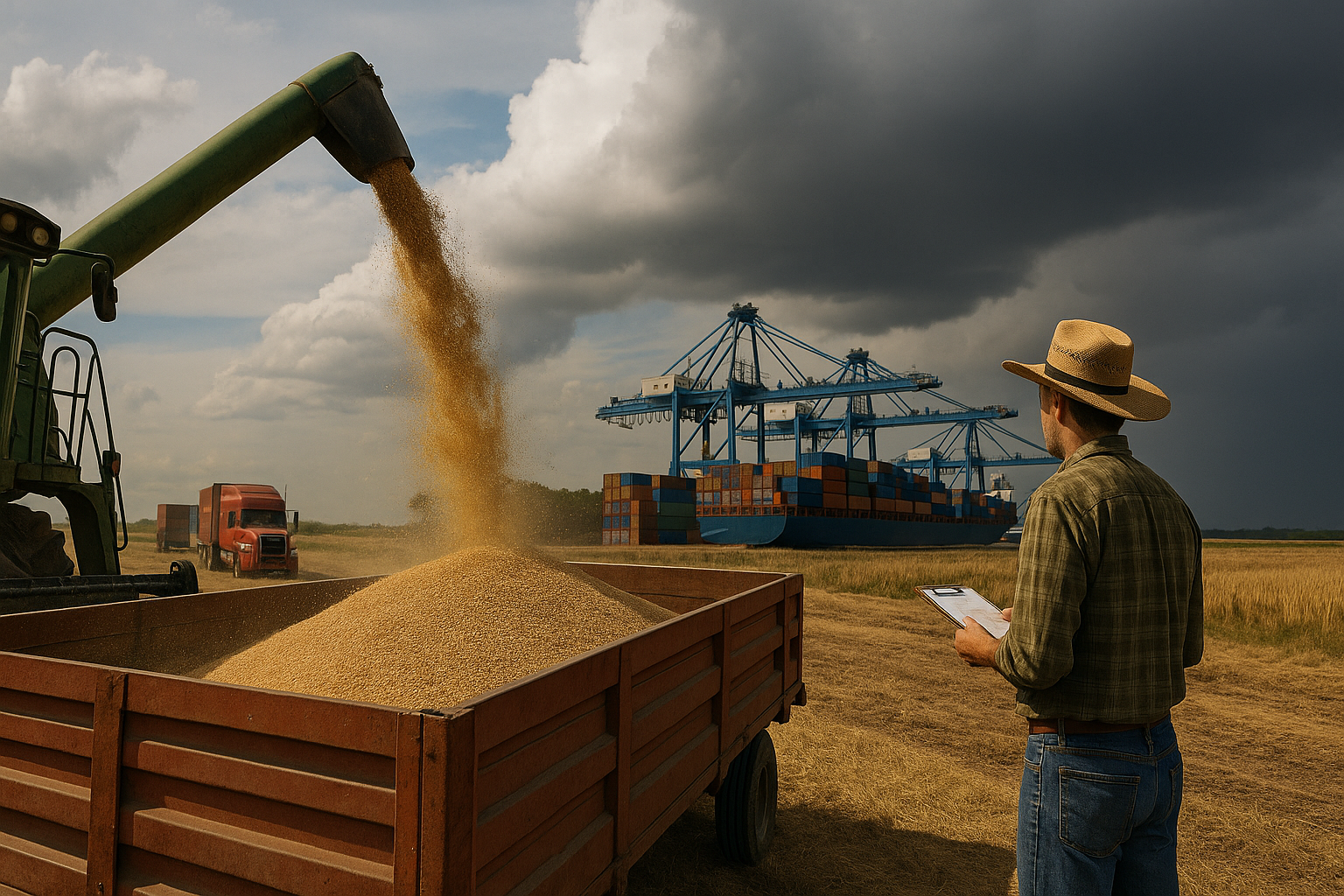The World Bank's Call for Open Markets to Protect Food Systems in a Warmer World
The World Bank’s report argues that open trade and integrated markets are crucial for global food and nutrition security amid rising climate and geopolitical shocks. It warns against price insulation policies and urges reforms in trade, fertilizer access, and agricultural resilience.

A powerful new World Bank report, developed with contributions from leading research institutions like the University of California Davis, North Dakota State University, the University of Göttingen, IFPRI, and GTAP, examines how climate change, geopolitical shocks, and trade policy collide to shape global food and nutrition security (FNS). Titled Integrated Markets for Resilient Food Systems, the publication delivers a sweeping assessment of how food trade and policy decisions affect household welfare in a volatile world. The central argument is clear: open trade and integrated markets, unburdened by price-distorting interventions, offer the best chance of ensuring resilience against future food crises.
The report begins by confronting the climate reality. Rising temperatures, shifting rainfall, and extreme weather events are already degrading agricultural productivity. According to cited studies, crop yields in some regions could plunge by over 50% by 2050 due to climate-related droughts alone. Artuc et al. modeled the impact of climate-induced agricultural shocks in 51 low- and middle-income countries, estimating average productivity losses of nearly 40%. On top of this, real incomes are projected to fall by nearly 10% globally, with the poorest regions hit hardest. Food inflation is already climbing, especially in Europe, where it could increase by 30–50% by 2035, and in 2021 alone, soaring prices drove an additional 30 million people into food insecurity.
The Ukraine Invasion: A Wake-Up Call for Global Markets
Russia’s 2022 invasion of Ukraine served as a real-world stress test for global food systems, simulating the kind of shock that climate change may cause more frequently in the future. Russia, Ukraine, and Belarus are key suppliers of wheat, corn, fertilizers, and energy, all vital components of food production. The war led to a sharp reduction in Ukrainian grain production and triggered unprecedented export disruptions. Grain harvests fell from 85 million tons in 2021 to just 55 million tons by 2023. Food inflation soared, and by late 2023, more than one-third of low-income and lower-middle-income countries were experiencing food price inflation above 15%, some exceeding 30%. Globally, a record 258 million people were plunged into acute food insecurity in 2022.
Yet the international food system proved surprisingly adaptable. The EU’s Solidarity Lanes and the Black Sea Grain Initiative allowed Ukrainian exports to continue flowing. Countries like Morocco rerouted shipments through alternative ports in Türkiye and Romania. Meanwhile, Egypt, Türkiye, and several nations in West Africa diversified their grain sources and switched to substitutes like millet, maize, and sorghum. This flexibility helped offset disruptions and averted a global food catastrophe, offering proof that international trade networks, if managed wisely, can be remarkably resilient even in the face of geopolitical chaos.
Fertilizer Markets: A Fragile Backbone of Global Food Systems
Less visible but no less critical were the disruptions to global fertilizer markets. Russia and Belarus are major exporters of key fertilizers, and the war triggered a spike in both prices and policy barriers. Fertilizer tariffs are generally low, but non-tariff measures (NTMs), especially technical barriers to trade (TBTs), rose dramatically. The report found that while sanitary and phytosanitary (SPS) measures often facilitate trade by assuring product safety and transparency, TBTs like import licenses often raise trade costs and reduce availability. Countries such as China and Zimbabwe imposed some of the highest fertilizer tariffs, up to 27%, intensifying the cost burden on farmers.
The report also shows a close link between fertilizer and energy prices, and ammonia-based fertilizers depend heavily on natural gas. As gas prices surged, global ammonia production fell, prompting China to restrict fertilizer exports. These compounding pressures reversed a decade of growth in fertilizer trade, with severe implications for agricultural yields and food availability in the world’s most vulnerable regions.
Price Insulation: Politically Popular, Economically Damaging
In the wake of shocks, governments often turn to price insulation policies, export bans, import subsidies, and trade taxes to shield domestic markets. But the World Bank warns these measures often do more harm than good. During the Ukraine crisis, over 100 export restrictions were introduced, affecting more than 11% of the global food trade. India’s export bans on non-Basmati rice disrupted 60% of its rice trade, sending ripples across the globe. These reactive measures increased global food prices, undermined supply chains, and triggered retaliatory actions. Moreover, they often hurt the very populations they intend to protect, particularly poor households who rely on affordable food imports.
Case studies of Chile and Colombia illustrate the contrast. Chile’s open-market approach allowed prices to adjust and encouraged domestic production, resulting in a manageable 17% increase in wheat import costs. In Colombia, price insulation led to a demand surge, inflated import costs and worsened fiscal balances. Countries with open trade systems emerged with more stable food supplies and better nutritional outcomes. Yet, trade integration appears to be in decline. In 2023, nearly 3,000 new trade restrictions were enacted worldwide, a fivefold increase since 2015.
The Path Forward: Trade Integration and Smart Reform
At the multilateral level, it calls for stronger WTO commitments to discipline ad hoc policy measures and reduce trade distortions. It urges improvements to global early warning systems like AMIS and more support for infrastructure upgrades in developing countries. Nationally, the report recommends reducing food and fertilizer tariffs, streamlining NTMs, improving customs procedures, and enhancing targeted safety nets.
In the long term, governments are encouraged to shift from inefficient subsidies to climate-smart investments. These include funding agricultural R&D, upgrading storage facilities, and supporting digital platforms that improve logistics. Importantly, countries must resist the temptation of short-term protectionism and instead build inclusive, efficient, and resilient food systems that can withstand the twin challenges of conflict and climate change.
- FIRST PUBLISHED IN:
- Devdiscourse










